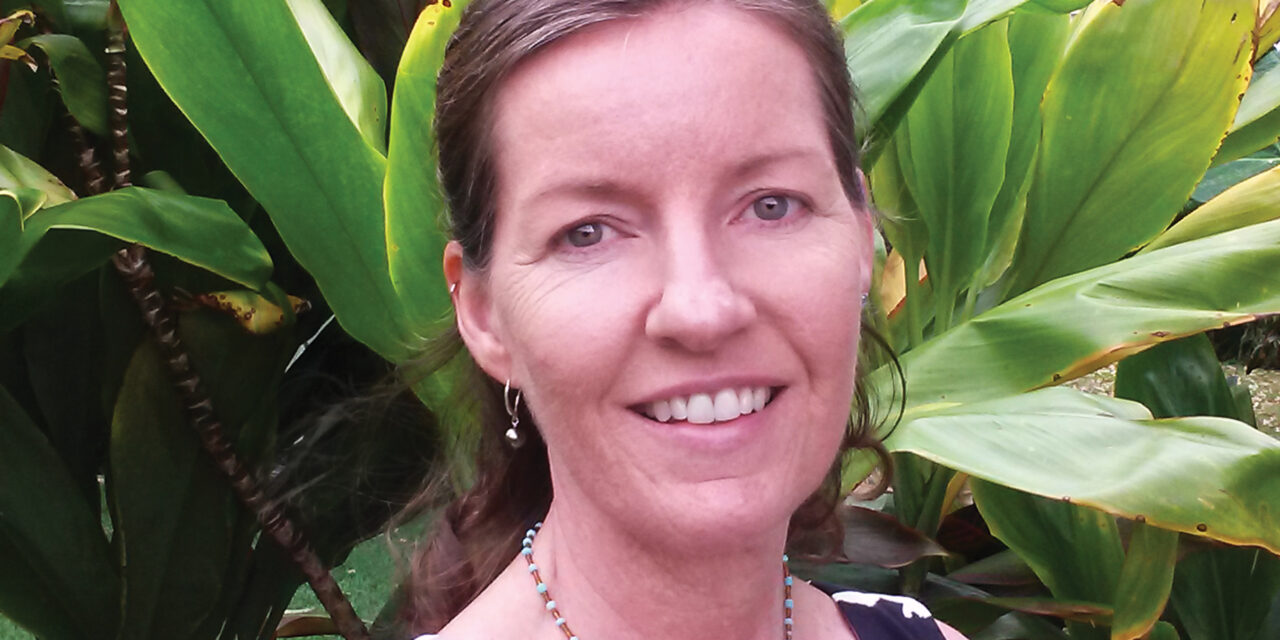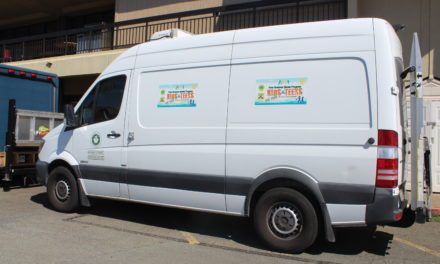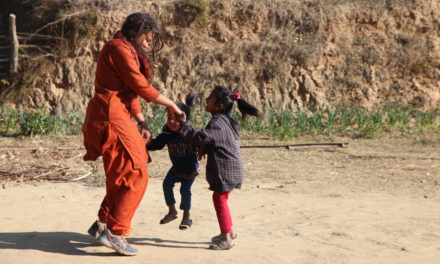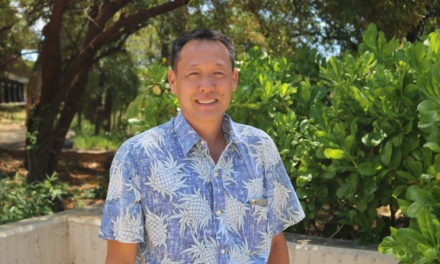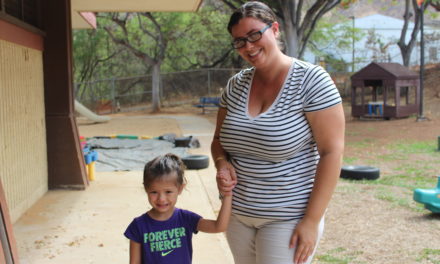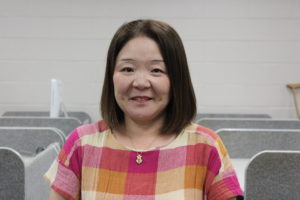Professor Sheryl Shook wrote the textbook for her Science of Sleep course and strives to create an educational environment where all students feel that they belong. (Photo courtesy of Sheryl Shook)
By Cameron Enomoto | Staff Writer
Most professors require textbooks from various authors for their courses, which can cost upwards of $100. Professor Sheryl Shook, the instructor for the Science of Sleep course (PHYL 160), has written a zero-cost textbook that is available to all students and the public. As an ex-NASA employee and a proud Cherokee, there is more to Shook than meets the eye.
Shook, who has taught at KCC for 13 years, wrote the textbook for the Science of Sleep course in collaboration with Jason Ford and Dr. Sunny Pai. Ford helped to collect open images that are available to the public, for the book, and Pai taught her about open educational resources. Additionally, student artists created content for the textbook. The writing for the manuscript alone took almost a year, as the professor worked on the book during her free time outside of teaching. Putting everything together took another year, though Shook feels her efforts were worth the work.
“I value open educational resources because of the social justice aspect,” she said. “Open educational resources have a tremendous impact because once you create a zero-cost textbook, you’re increasing access to the course. You’re already making the student population more diverse because students who before couldn’t take it because they couldn’t afford the book can take it.”
Shook, who will be teaching PHYL 142, PHYL 160, and PHYL 160L asynchronously in the spring semester, is a caring and inspiring instructor who looks to bring out the best in all of her students. In her PHYL 160 course, it is evident in her lessons that she puts time into organizing content so that students will not only learn for themselves but share that information with others so that they may benefit as well.
Born and raised in California, Shook was first interested in astronomy, engineering, and psychology. Her interests led her to complete a degree in engineering from California Polytechnic State University in San Luis Obispo County. Soon after, she began working for a space station program at NASA’s Johnson Space Center in Houston, Texas.
In her early 20s, she volunteered at a psychiatric unit in Southern California. There, she met patients who had schizophrenia, psychiatric problems, and neurological disorders.
“It was a big turnaround point for me because I had this really cushy job, living an easy life, and it’s cool. But looking around, I started to see Los Angeles differently,” Shook said. “From there, I realized that I wanted to help people. It’s crazy that something could be so wrong with your brain that you end up losing your job or getting addicted to something and end up being homeless.”
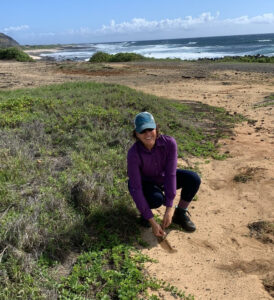
Sheryl Shook volunteers with the Sierra Club collecting and planting endemic grass seeds in the sand dunes at Wāwāmalu Beach as part of a restoration project. (Photo courtesy of Sheryl Shook)
She quit her job in the space station program and went to the University of California, Davis to get her doctorate in neuroscience. While working with neurosurgeons and in the seizure unit, Shook decided to study herbal medicine and wrote a book about neurologic disorders. In the process of writing her book, “Herbs and Nutrients for Neurologic Disorders,” she received a message from one of her friends who encouraged her to apply for a teaching position at KCC.
Shook was selected for the position and developed a love for teaching. She recalls the first few years being uncomfortable due to being nervous all the time, but she enjoys learning and growing with students in her classroom. Recently, she had the opportunity to present a project at the National Indian Education Association in Oklahoma. Shook completed the project in with her colleagues in a yearlong program called ʻE Hoʻi Nā Wai.
“I was taught how to support students’ cultures and teach students in an indigenous way but then I had to figure out how to do it specifically for my class,” Shook said.
Recently, Shook was selected to attend a three-week program in Senegal in January 2023. The program is sponsored by the United States Department of State with the purpose of learning how to teach students in a way that will help them understand cultures they might not have an opportunity to experience.
During the program, the professor will work with others to create educational material that can be used all over the world that will help other people teach students about Senegal and West Africa.
“Looking at West Africa and the diaspora, I will learn more about their issues, concerns, spirituality, environment, and so many other things,” Shook said. “I can then bring that back to my students in the context of sleep. Hopefully, they’ll see things like ‘Whoa, those folks in Senegal are so different from me but wait, they’re also so similar. They share my values and my concerns.’”

